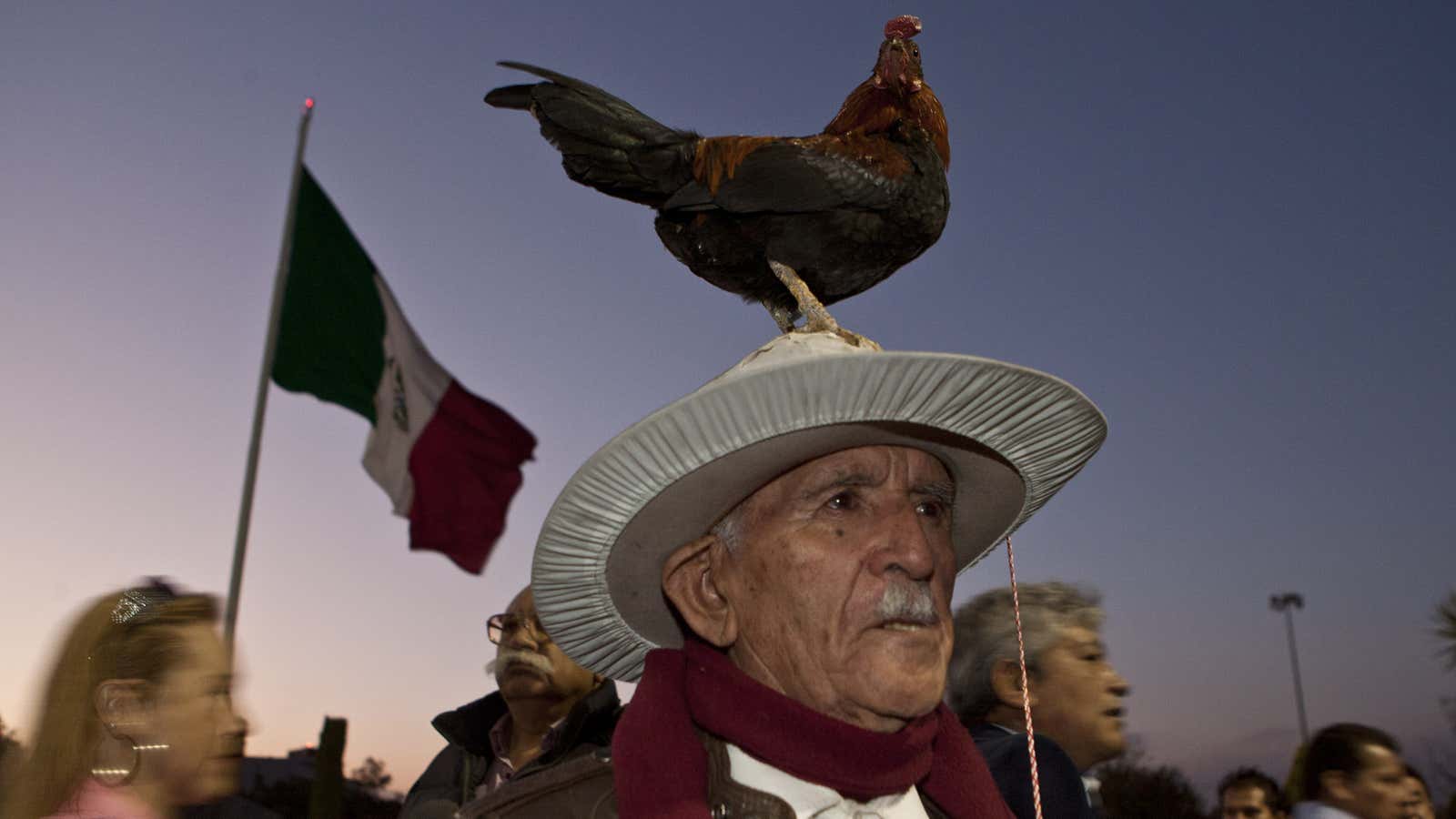Language is shaped by a people’s environment. Inuits famously have more than 50 words for snow, while Hawaiians have 65 to describe fishnets. In Mexico, there are 300 terms to refer to corruption.
They are compiled in a new book, the “Mexican Corruptionary,” a tongue-in-cheek effort to get Mexicans to own up to their corrupt behavior, which costs their country’s economy billions of dollars a year and has wreaked social havoc by undermining its institutions. It was put together by Opciona, a civil society group that seeks to improve civility in Mexico under the motto #EmpiezaPorTi, or start with you.
Mexicans rank corruption as their second biggest concern (link in Spanish) after insecurity and crime—which in turn can be linked to corruption via dirty elected officials. (See G, for Góber, short for governor. )
The majority of Mexicans, 89%, believe that abstaining from paying bribes (see under M, for mordida or bite) would help reduce the problem, according to an Opciona survey (Spanish) conducted last month. But it’s a conviction that doesn’t always hold when faced with a hefty fine: 23% respondents “greased the hand” or “got handsome” with an official in the previous month.
It’s a practice that even the head of the anti-corruption Opciona, Alejandro Legorreta, admits being guilty of.
“I may not be part of the cartoons in the Mexican Corruptionary because there were few witnesses on that occasion when the officer stopped me months before turning 16, or for other reasons,” he wrote in an op-ed (Spanish.) “Back then it seemed funny, not anymore.”
The book itself, published by Penguin Random House and online here (Spanish,) is pretty funny, despite its tragic implications. Opciona enlisted well-known political cartoonists to draw concepts such as abogánster, a combination of the Spanish words for “lawyer” and “gangster” used to name any lawyer or “student of that elegant profession who offers his services outside public ministry buildings to extract a juicy bite from you.” It can also refer to those who promise to design a “fiscal strategy” to evade taxes.
Bisnero means someone “who passes himself for a politician or businessperson, and who thinks being a man of ‘the state’ or ‘of business’ is enough to conduct bisnes through moches (i.e. cuts), palancas (i.e. levers or influence trafficking,) and other corruption acts. They don’t contribute anything to government, or the country’s production chains, but yes, they wear their thick golden chains.”
“I laughed, until suddenly I stopped and felt heartburn,” said Diego Luna (Spanish,) an actor and the author of the book’s foreword, during the Courruptionary’s presentation. “I felt very uncomfortable with myself.”
That’s the idea.
